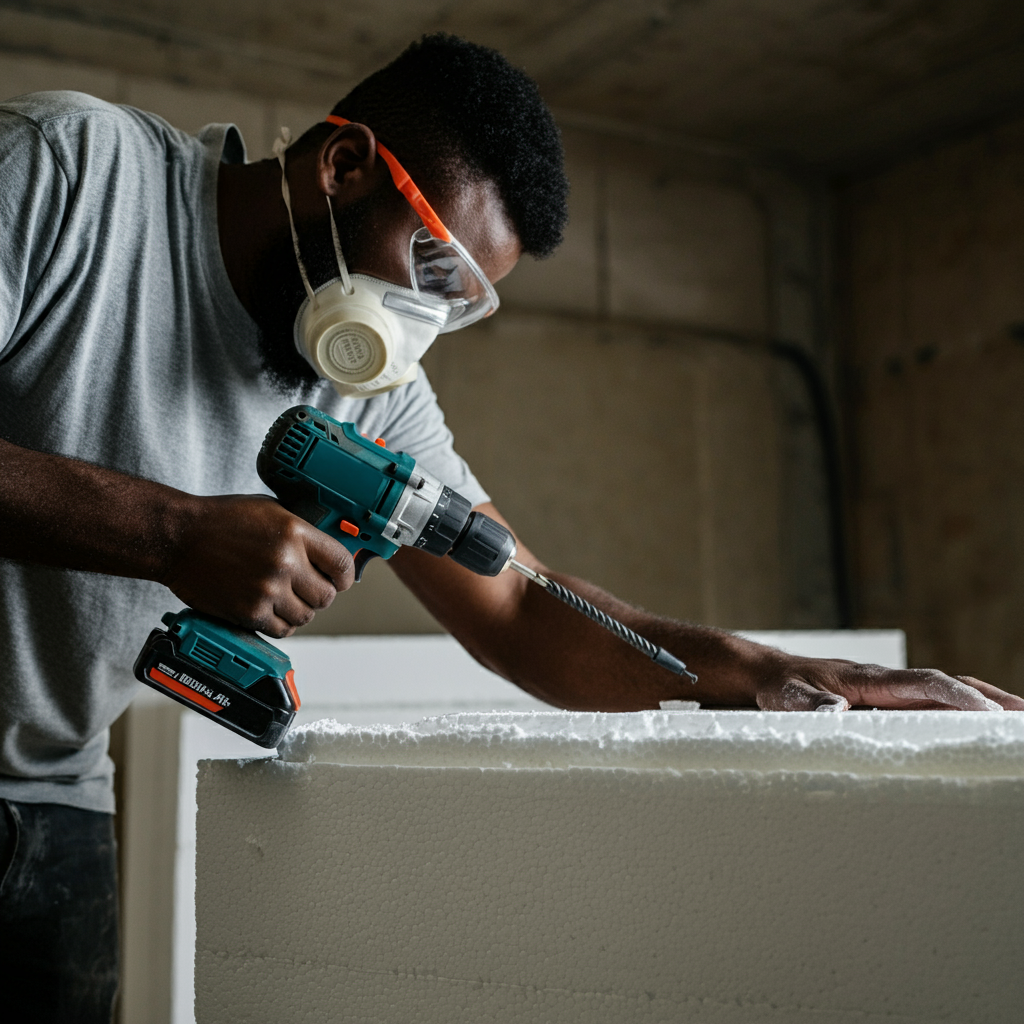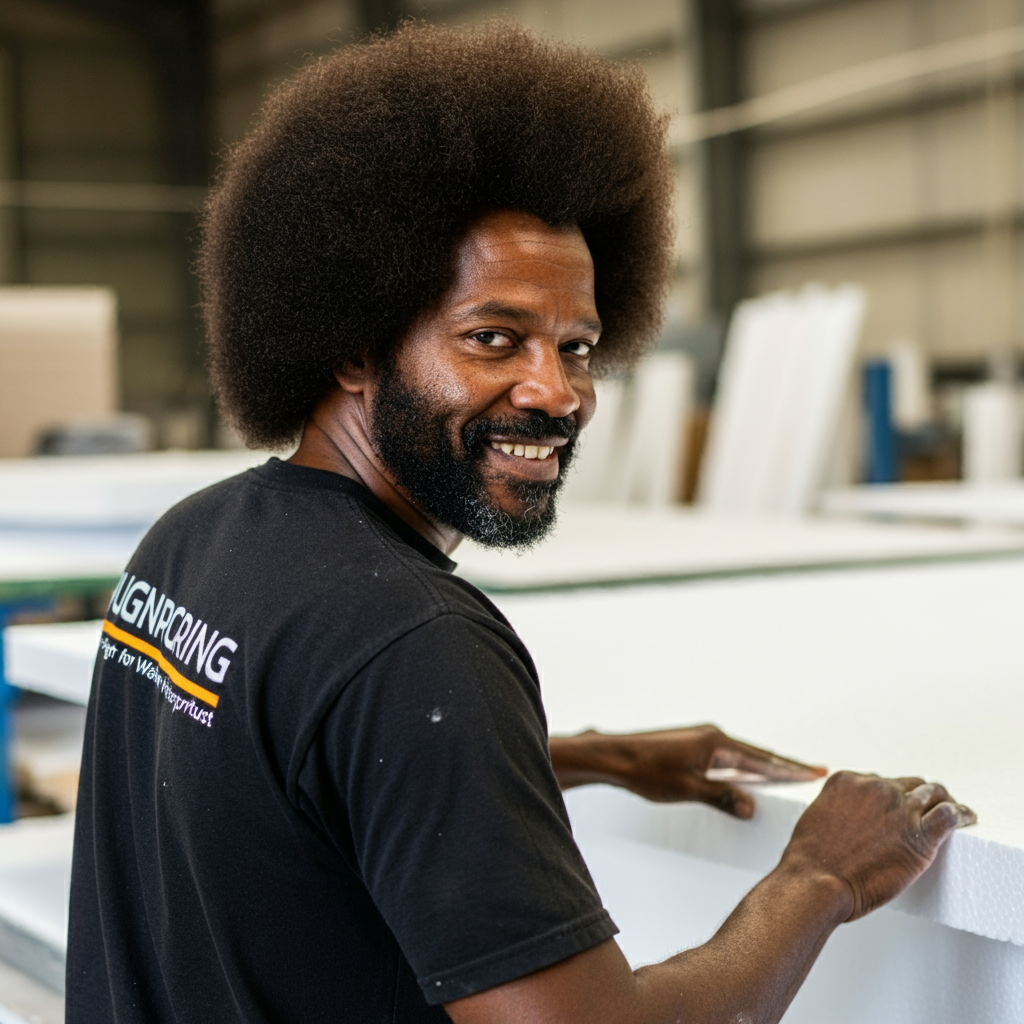- temmuz
- June 27, 2024
Introduction
Did you know that nearly 30% of a building’s energy loss occurs through its walls? Choosing the right insulation can dramatically reduce this energy loss and lower operational costs. In Nigeria, where energy efficiency is crucial due to the high costs of electricity and the frequent power outages, selecting the right insulation material is essential for improving building performance and reducing operational costs. Among the various options available on the market, polystyrene—particularly Expanded Polystyrene (EPS)—has emerged as a leading choice for insulation in both residential and commercial buildings. This article explores the numerous benefits associated with using polystyrene for building insulation in Nigeria.
Advantages of Polystyrene Insulation
Polystyrene offers several compelling advantages that set it apart from traditional insulation materials in the Nigerian context:
High Thermal Resistance (R-value):
Polystyrene typically boasts an R-value ranging from 3.6 to 4.2 per inch, depending on density. This high R-value indicates excellent insulating properties that help maintain comfortable indoor temperatures, which is particularly beneficial in Nigeria’s hot and humid climate, minimizing the need for excessive air conditioning and reducing energy consumption.
Cost Savings:
Although the upfront cost of polystyrene insulation may be similar to other materials like fiberglass or cellulose, the long-term savings are substantial. With energy costs rising in Nigeria, effective insulation can lead to significant reductions in electricity bills over time. Additionally, its durability means less frequent replacements or repairs are needed, which is advantageous in a market where maintenance costs can add up.
Moisture Resistance:
Unlike some traditional insulation materials that can absorb moisture and promote mold growth, polystyrene is inherently moisture-resistant. This characteristic makes it suitable for use in areas prone to humidity or water exposure, such as coastal regions, without compromising its insulating properties or structural integrity.
Comparison with Other Insulation Materials
When comparing polystyrene insulation with other common options such as fiberglass or cellulose in the Nigerian market, several key differences emerge:
Feature | Polystyrene | Fiberglass | Cellulose |
Weight | Lightweight | Heavier | Medium |
Thermal Performance | High R-value (3.6 – 4.2) | Moderate R-value | Moderate R-value |
Moisture Resistance | Excellent | Poor | Moderate (can absorb moisture) |
Installation Ease | Easy to handle | Requires protective gear | Requires careful handling |
Longevity | Durable | Can compress over time | Settles and degrades |
Environmental Considerations
As environmental concerns continue to shape consumer choices in building materials, polystyrene stands out for several reasons relevant to Nigeria:
Recyclability:
At the end of its life cycle, polystyrene can be recycled into new products rather than ending up in landfills. This is increasingly important in Nigeria, where waste management is a growing concern. Many manufacturers are starting to establish recycling programs that facilitate this process, aligning with global sustainability trends.
Sustainable Production Practices:
The production process for polystyrene has evolved significantly over recent years, with many manufacturers adopting more sustainable practices aimed at reducing carbon footprints and minimizing waste during production. Local manufacturers are beginning to focus on sustainable sourcing of materials and reducing emissions, contributing to a more environmentally friendly construction sector.
Local Market Trends:
In Nigeria, the demand for energy-efficient and sustainable building solutions is on the rise, driven by increasing awareness of climate change and energy costs. The local construction market is also seeing a shift towards modern building practices that prioritize durability and low maintenance. As builders and homeowners become more conscious of their environmental impact, polystyrene insulation is well-positioned to meet these needs due to its performance and sustainability features.
Conclusion
Polystyrene insulation offers an array of benefits that make it an ideal choice for builders in Nigeria aiming for energy efficiency and sustainability without compromising on performance or cost-effectiveness. With its high thermal resistance, moisture resistance, ease of installation, and recyclability features—all contributing factors toward long-term savings—polystyrene remains at the forefront of modern building insulation solutions.
As you plan your next construction project in Nigeria, consider polystyrene insulation for its unbeatable combination of performance, cost-effectiveness, and sustainability. Make the smart choice for both your building and the environment.

